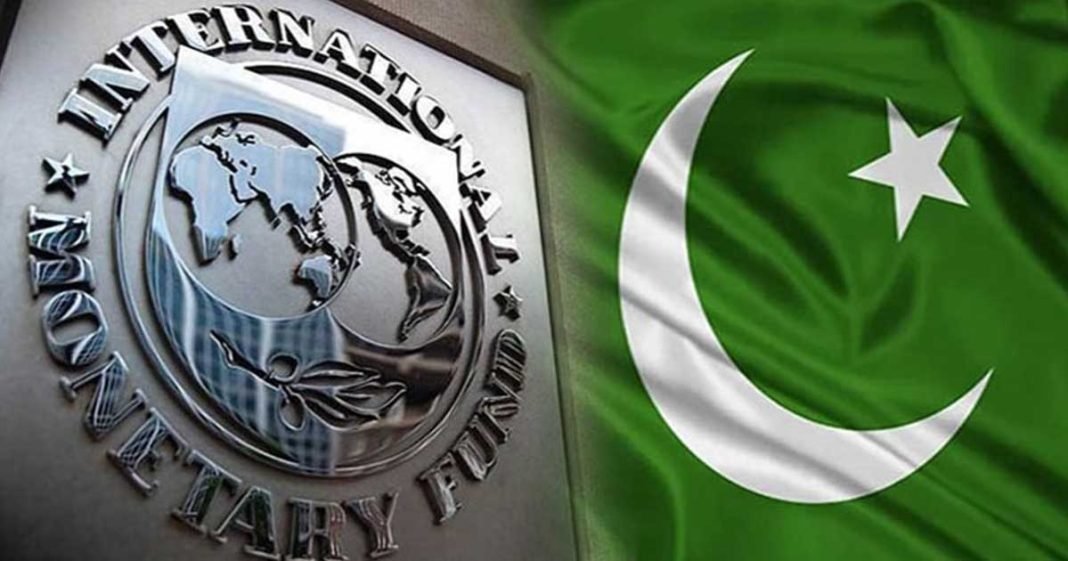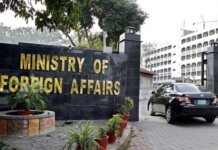Islamabad, 30 August 2022 (TDI): The Executive Board of the International Monetary Fund (IMF) has authorized the revival of Pakistan’s Extended Fund Facility (EFF) program.
This has been shared by the Finance Minister of Pakistan, Miftah Ismail. Along with that, the country will also receive the 7th and 8th tranches of $1.17 billion.
Alhamdolillah the IMF Board has approved the revival of our EFF program. We should now be getting the 7th & 8th tranche of $1.17 billion. I want to thank the Prime Minister @CMShehbaz for taking so many tough decisions and saving Pakistan from default. I congratulate the nation.
— Miftah Ismail (@MiftahIsmail) August 29, 2022
Moreover, the Minister continued by congratulating the country and thanking Shehbaz Sharif for “taking difficult decisions” and “saving Pakistan from default.”
In light of the following events, Prime Minister of Pakistan, Shehbaz Sharif said that the formal resumption of an IMF program is a significant step in the country’s efforts to revive its economy.
The formal resumption of an IMF program is a major step forward in our efforts to put Pakistan’s economy back on track. It is outcome of an excellent team effort. I commend Finance Minister Miftah Ismail & his team and other stakeholders for their hard work.
— Shehbaz Sharif (@CMShehbaz) August 29, 2022
Additional details of the decision
The IMF’s decision allows immediate disbursement of about $1.2 billion to Pakistan and may give up to $4 billion throughout the remaining months of the current fiscal year, which started on July 1.
Also read: Pakistan to sign IMF’s letter of Intent
Additionally, the Board has also given its approval for the program to be extended through the end of June 2023 and for access to be increased by SDR 720 million ($930 million).
With the augmentation, the program’s budget was raised to SDR 4.988 billion, equivalent to 245.6% of Pakistan’s quota.
In its handout, the IMF emphasized the necessity to raise energy costs and enhance taxes on petroleum products, according to the schedule agreed upon between Pakistan and IMF.
Statement by IMF Deputy Managing Director
Antoinette Sayeh, Deputy Managing Director and Acting Chair, made the following remark after the Executive Board’s discussion on Pakistan;
Efforts to boost the energy sector’s viability and eliminate unsustainable losses are crucial, especially by adhering to the scheduled increases in fuel levies and energy tariffs.
Furthermore, she stated that cutting current spending and mobilizing tax revenues are essential to provide room for much-needed social protection and to enhance the sustainability of the public debt.
According to the Deputy Managing Director, it was necessary to tighten monetary conditions by raising policy rates to contain inflation. Also, tight monetary policy would contribute to reducing inflation and addressing external imbalances.
Moreover, maintaining a proactive and data-driven monetary policy would support these objectives. To withstand external shocks, preserve competitiveness, and restock foreign reserves, maintaining a market-determined exchange rate is still essential.
Along these lines, she insisted that “Accelerating structural reforms to strengthen governance, including of state-owned enterprises, and improve the business environment would support sustainable growth.”
Also, to create jobs and strengthen the private sector, reforms that level the playing field for trade, investment, and business are crucial.
The buildup of the decision
On June 21, Pakistan’s authorities and the IMF staff mission agreed on the federal budget for the current fiscal year to restart the loan program that had stalled.
Consequently, the authorities agreed to raise an additional Rs 436 billion in taxes and gradually raise the petroleum tax to Rs50 per liter.
As a result, the IMF staff noted in a statement that significant advancements regarding the federal budget had been made.
In addition, Pakistan must now promptly pass-through monthly fuel cost adjustments and raise the electricity tariff by Rs 7.91 per unit to comply with IMF requirements.








